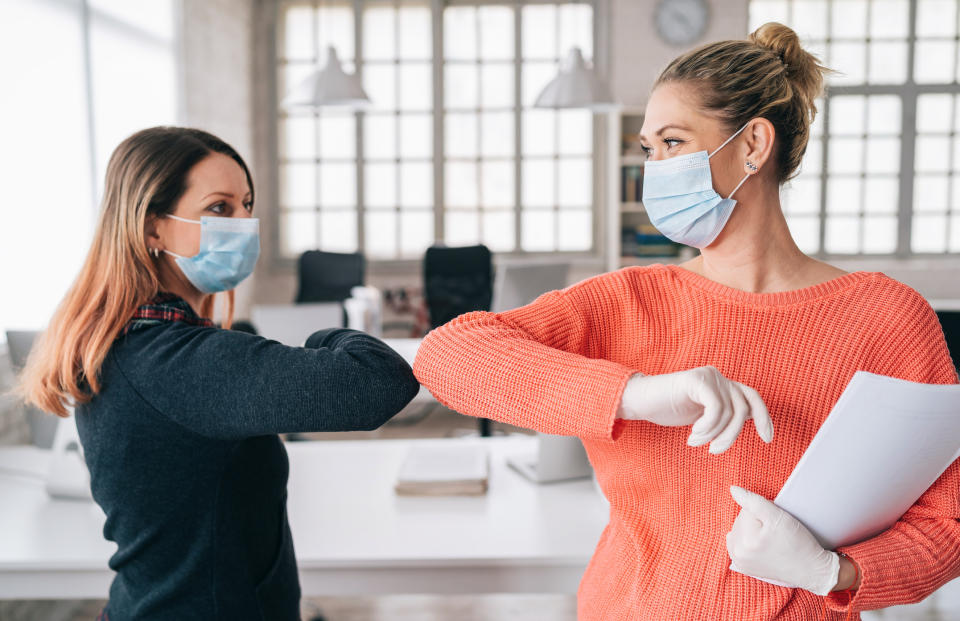No desk photos: How office life will change when you return

The coronavirus pandemic will eventually pass, whether it is because of a breakthrough treatment, a new vaccine or that enough of the population will have been infected.
So working from home will not last forever, and eventually office life will resume.
But experts warn that there will be permanent changes likely in the way we interact with colleagues at work.
“It’s fair to ask whether communal workspaces might be a thing of the past,” associate professor Rachel Morrison from the Auckland University of Technology wrote on The Conversation.
“Even if some organisations can operate with minimal risk there will be an expectation they provide virus-free workplaces, should there be future outbreaks.”
This is especially true because of the trend in recent decades towards open plan offices. There are not many physical barriers to stop disease from spreading in such an environment.
Office design changes
There is already a company in the Netherlands designing ‘6 feet offices’ that have workstations spaced to maintain social distancing, according to Morrison.
“We may even see the return of the high-walled cubicle, and the introduction of wide corridors and one-way foot traffic, already found in some hospitals,” she said.
“Activity-based work and hot-desks (which oblige people to move throughout the day) could be replaced by assigned desk arrangements where workers sit back to back.”
Other physical changes could include technology like voice-activated lifts and doors, as well as touchless bathroom sinks and soap dispensers. UV lights can disinfect surfaces after hours.
Office behaviour changes
But the biggest adjustments will lay with the changes required of people.
"New norms of hand sanitising, cleaning equipment and wearing masks will emerge," Morrison said.
"Handshaking or friendly pecks on the cheek may soon be things of the past, as will family photos and mementos on desks, if they prove too difficult to sanitise."
The proportion of staff working from home will likely increase, as employers find staggering office attendance necessary to maintain social distancing.
"Staggered shifts, enforced flexitime, and 24/7 operations may become the norm, along with working remotely."
Hot desking, which is another emerging trend alongside open plan offices, may well see a decline.
"In the past, hot desking has usually required you to plug in your own computer each day, but things like keyboards and the mouse are shared," Ray White Commercial head of research Vanessa Rader told Nine.
"But where it continues, companies may have to ensure each staff member has their own keyboard and mouse, rather than sharing."
And sadly, business travel could become obsolete after the COVID-19 epidemic.
"There are a few things, like business trips, that I doubt will ever go back," Microsoft co-founder Bill Gates said in a recent podcast.
US travel industry expert Gary Leff wrote on his blog last week that the criteria for corporate trips will tighten.
"We can expect fewer ‘must do’ business trips in the future, since videoconferencing is becoming more of an accepted alternative to many meetings that would have been done in person," he wrote.
"While the normalisation of videoconferencing makes us more location-independent, it also means fewer ‘pay any price’ last minute trips."
Follow Yahoo Finance Australia on Facebook, Twitter, Instagram and LinkedIn.

 Yahoo Finance
Yahoo Finance 
